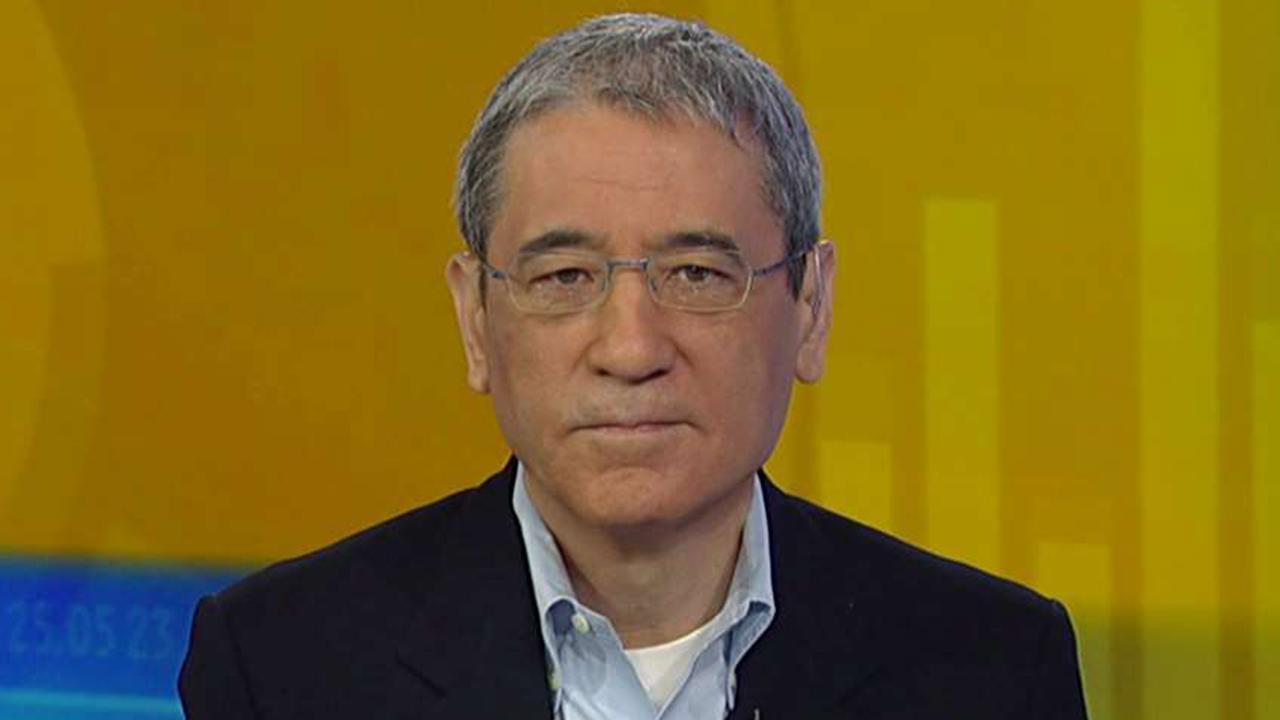US may have to put 100% tariffs on Chinese goods: Gordon Chang
Author and columnist Gordon Chang said on Sunday that President Trump should impose the tariffs on $200 billion worth of Chinese goods, a plan he has reportedly considered moving on in the coming week.
“He should do it at the 25 percent rate, rather than the 10 [percent rate],” Chang, author of “The Coming Collapse of China,” said during an interview on “Sunday Morning Futures.” “I would even go higher, and the reason is the Chinese have been stealing hundreds of billions of dollars of U.S. intellectual property each year. That’s what these tariffs are intended to remedy. And the Chinese are not stopping. So clearly we’ve got to make the costs higher.”
Trump plans to move forward with what would be the next round of tariffs when a public-comment period ends next week, according to Bloomberg, which cited six people familiar with the matter. So far, the U.S. has imposed tariffs on $50 billion worth of Chinese goods, to which Beijing has responded in a similar fashion.
The U.S. president has previously threatened to impose duties on nearly all goods that China imports to the U.S. each year, approximately worth $500 billion, an idea that Chang said might have to become reality.
“If tariffs don’t work, then we have to go to something even more drastic which would be just banning Chinese imports,” he said.
Chang added that China’s theft of intellectual property from the U.S. needs to be stopped, warning that it could have a devastating effect on the American economy.
“We’ve got to stop China’s theft because we have an innovation-based economy,” he said. “If we cannot commercialize that innovation we don’t have very much of an economy.”
Meanwhile, U.S. companies – specifically Apple – could be used as “bargaining chips” in the trade war between the two nations, according to China’s state-backed People’s Daily newspaper, which published an article in early August saying that the tech giant benefits from the country’s “ample supply of cheap labor” and needs to share more of its profits with the local population in China.
“China is by far the most important overseas market for the US-based Apple, leaving it exposed if Chinese people make it a target of anger and nationalist sentiment,” the opinion piece read. “If the US company wants to earn good money in China, its needs to share its development dividends with the Chinese people.”
The article noted that sales to the greater China region in the company’s fiscal third quarter gained 19 percent to $9.6 billion. However, it said Chinese processors only receive “1.8 percent of the total profits” created by the iPhone. Apple recently became the first publicly traded U.S. company to reach a market capitalization of $1 trillion.
“The real reason why Apple has a problem is because it has a supply chain that’s very difficult to move,” Chang said. “It’s got Foxconn, its contract manufacturer, they’re in China. It would take a number of years for Foxconn and Apple to move elsewhere. Other companies, basically they can move a lot quicker … So China’s threats against other companies are pretty hollow. Against Apple it’s a real threat.”




















